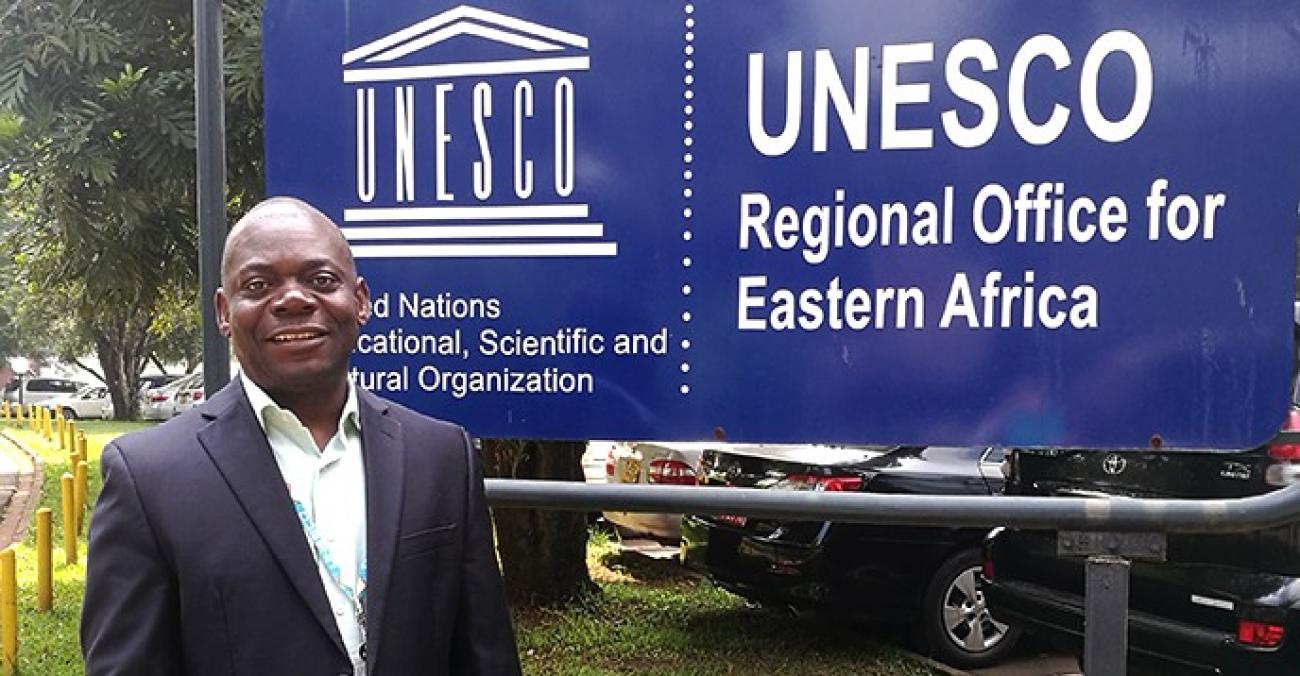Leveraging the power of partnerships to support freedom of expression in Somalia

Somalia has one of the most vibrant media ecosystems in the region despite multiple threats against journalists and freedom of expression in the country.
Somalia, in a way, is a set of contradictions. The hustle of daily life, the urban real estate boom, and the vibrancy of the politics in Mogadishu mask the daily risks that Somalis have to contend with, perpetuated by violent extremism, a fractious clan system, and a volatile climate. The resultant humanitarian and development challenges are no doubt immense, but the vibrancy of daily life and the will to move from fragility to recovery despite these underlying threats, in a way, reflect the resilience of the Somali society, its culture, and institutions.
This set of contradictions is at the same time replicated in the Somali media sector. Dubbed one of the most dangerous places on earth to practice journalism, Somali media has borne the brunt of this fragility. Journalists and media institutions have often been direct targets of violent extremism because of their work. The situation is not helped by the fact that the complex clan relationships and fragile security situation tend to define what is acceptable as media discourse. Hence, journalists often find themselves on the wrong side of both state and non-state actors because of what they write, say or do as part of their profession. Attacks on journalists, including killings, threats, arbitrary arrests and detentions, have become a daily feature of Somali journalism. Yet, despite these threats, Somalia still has one of the most vibrant media ecosystems in the region.
It is within this context that UNESCO, as the UN lead agency on freedom of expression, access to information and safety of journalists continues to be relevant to Somalia, especially in establishing frameworks and building capacities for the protection of freedom of expression and journalists. In order to support UNESCO’s work, John Bosco Mayiga was seconded to the Regional Office for Eastern Africa in Nairobi through an NRC/NORCAP-UNESCO partnership to provide strategic leadership to UNESCO’s Communication and Information work in Somalia. “My deployment has primarily focused on supporting UNESCO’s efforts in providing policy and technical support to enhance legal and institutional frameworks to support freedom of expression, access to information and safety of journalists,” explains Mr Mayiga.
Since his deployment in this role, Mr Mayiga has provided strategic direction in the planning, co-ordination and implementation of Communication and Information initiatives in Somalia, as well as increased UNESCO’s visibility in UN and development partners’ platforms, thus strengthening its position as the UN lead agency on freedom of expression, access to information and media development.
The partnership between UNESCO and NORCAP has seen experts from various fields such as education, disaster reduction, project management and freedom of expression, have been deployed to UNESCO offices in places such as Lebanon, Mauritania, Tunisia, Pakistan, and South Sudan. For Somalia, however, there is the urgent need to address the issue of freedom of expression and safety of journalists in. Because of cycles of conflict and fragility that have spanned decades, and because of the resultant weakening of state authority, Somalia has registered one of the highest numbers of crimes against journalists, highlighting the precarious conditions under which journalists work.
For example, between 2006 and 2016, UNESCO recorded 56 journalists killed in Somalia alone, one of highest fatalities of journalists in the world. According to a 2016 report by the United Nations Assistance Mission in Somalia (UNSOM)(link is external), between January 2014 and July 2016, there were 120 cases of arbitrary arrest and detention of journalists and media workers, owners of media houses and publishers. Although UNSOM, in a recent report notes that there was a decline in the number of journalists killed, with seven journalists and media workers killed between August 2016 and March 2018, compared to the previous periods, the report further notes that insecurity remains a major concern for journalists and media workers in Somalia. Between August 2016 and March 2018, thirty-two journalists and media workers were injured, while 81 were arbitrarily arrested and detained. The underlying problem is that most of these crimes go unpunished.
The limited legal framework, weak rule of law and human rights protection systems, generally contribute to a high level of impunity for human rights violations, including crimes against journalists.
Because of the urgency to tackle these challenges, UNESCO has managed to forge strategic partnerships with key stakeholders such as judges, prosecutors, and the government, to build on earlier partnerships with stakeholders such as parliament, the security forces, and media associations.
Mr Mayiga as a NORCAP secondee, has been central to these initiatives and explains his experiences:
Engaging these constituents has been an enriching experience for me, as well as a challenging one in some respects. Because building alliances to support freedom of expression and safety of journalists requires engaging multi-stakeholders of various interests, challenges related to defining the common ground become inevitable.
Through such partnerships, UNESCO led the process that resulted in the launching of a Multistakeholder Dialogue Forum for Safety of Journalists in Somalia, making Somalia the second country after Uganda to do so. This has been a major milestone, coming on the heels of the Eastern African Conference on safety of journalists last November that recommended the roll out of national mechanisms to protect journalists.
It is therefore an interesting dynamic that this key output to create a multistakeholder platform to support freedom of expression is a result of forging strategic partnerships. This point is no better expressed than in the partnership between UNESCO and NORCAP to support freedom of expression and safety of journalists in Somalia, and as Mr. Mayiga attests, the key lesson from his deployment is that strategic partnerships are essential in addressing complex humanitarian and development contexts such as Somalia.
Link to original story

